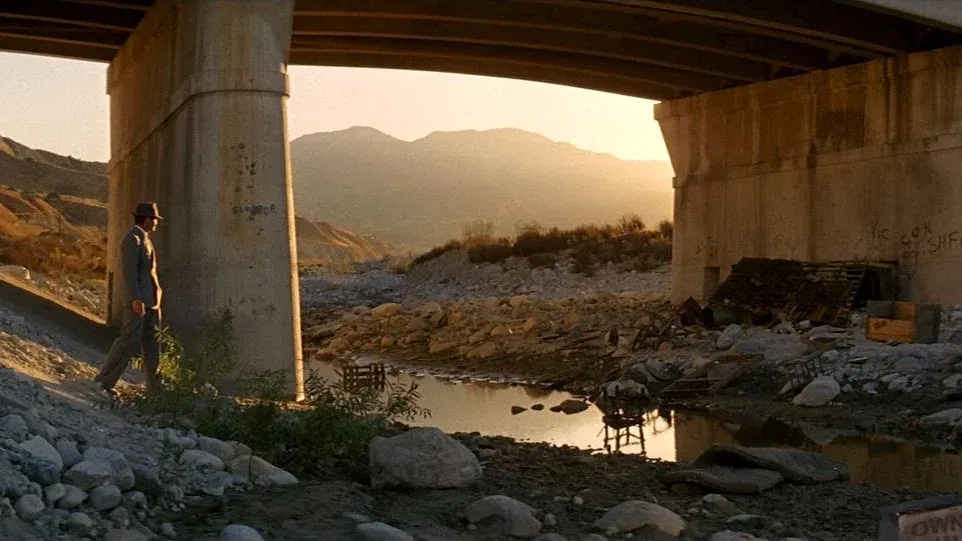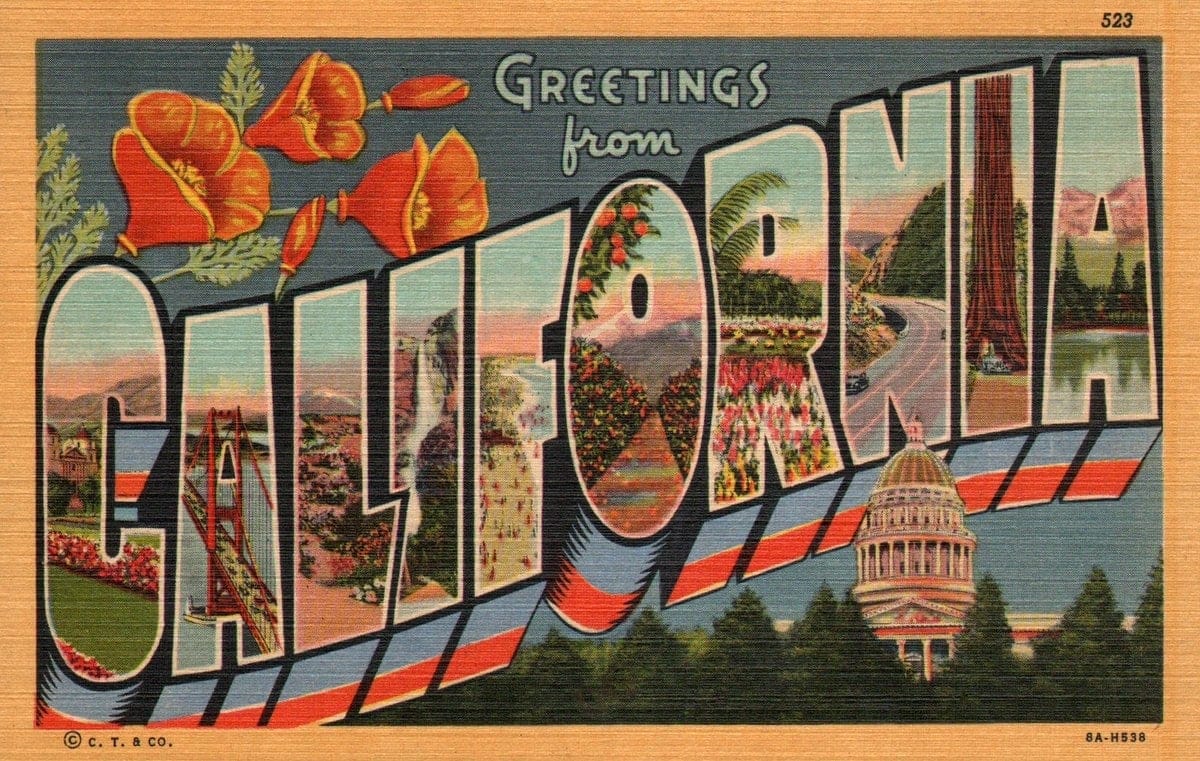PARADISE LOST

Attending authors Geoff Dyer and Chiara Barzini’s event “California Dreaming,” expertly hosted by Gareth Evans as part of the Cheltenham Literary Festival last night, was fascinating and touched upon many themes I’ve often considered myself, perhaps more in the cultural sphere than the geological or political one.
The notion of California—or, more specifically, Los Angeles—as an artificial dream, a man-made construct that became a “cradle” for mid- to late-20th-century Western consumerism and creativity, is a compelling one. Yet the city’s culture has always been inseparable from its artificially induced environment. William Mulholland’s ambitious water conveyance system, established in 1913 and carrying water over 200 miles south to Los Angeles, supplied not only the literal sustenance for a growing metropolis but also a symbolic flow that nourished its cultural life. Today, however, as politics and corruption once again threaten that system, the city’s cultural lifeblood risks being choked and the tap of creativity in Los Angeles being turned off altogether.
Barzini’s central thesis in her soon-to-be-released book Aqua is that the measure of a culture, empire, or civilisation lies in its relationship with water. She illustrated this concept through an analogy spanning 1,500 years, beginning with the Romans struggling to maintain their revolutionary water systems and concluding with the apocalyptic images of firefighters desperately trying to contain California’s wildfires in 2025, with dried-up fire hydrants. The same principles, she suggests, apply to the strain on resources following an age of seemingly perpetual abundance. She warns that America may be approaching its own “last days of Rome,” with California, as both a literal and symbolic signifier, at the very heart of its decline. It’s a bleak perspective, but there is still beauty to be found in the debris of its destruction: Barzini mentioned the recent conversion of the environmentally blighted Salton Sea shoreline, including Carcuss Bay with its fishbone-filled sand, into the Bombay Beach Biennale, a renegade project by volunteer artists that seeks to create an annual event out of its graveyard atmosphere—a metaphor for the dilemma of culture and landscape in a place that is mostly desert.
Dyer himself has now left Los Angeles to return to the UK, citing the city's breakdown of societal functionality during the COVID-19 pandemic, which shattered part of his dream of moving to California in the first place. He spoke about how the initial appeal of the place—its environment and lifestyle—has now become hollow, as homelessness and social inequality have sharply increased. The pioneer dream of the West, adopted by writer-vagabonds, especially English ones like himself and D.H. Lawrence, has become an unsustainable nightmare. Barzini added to this that a denialism among its many residents over a century—including those who cling to a superficial idea of the place but refuse to engage with the realities dictated by the environment—has contributed to a schism that has now widened significantly.

As for myself, I also found a resonance between Barzini’s early disillusionment with Hollywood and her exploration of the real story of the place she first encountered as a rebellious teenager after her parents moved from Italy to Los Angeles following Berlusconi’s election as Prime Minister. There is something poetic about discovering your deeper self or true source later in life after flirting with a more artificial version of yourself in pursuit of success. My own superficial dreams of California and Hollywood once led me to write a couple of screenplays set there. One, in particular, came to mind last night during their conversation. Adapt to Survive was an attempt at a Bogdanovich-style screwball comedy set in Death Valley, intersecting with the starker, elemental beauty of Roeg’s Walkabout. In it, my two protagonists — a sort of Hollywood Adam and Eve by way of a rehab centre — find themselves stranded in the hottest place on Earth, unraveling psychologically and emotionally as they desperately try to get back to Hollywood in one piece. It served as an illustration of an age of vacuous celebrity materialism suddenly exposed to the harsh reality of the elements, like bugs under the magnifying-glass sun of the desert, and, in some ways, reflected my own effort to shake the delusion of the Hollywood dream off my back.
The audience for the event arrived to the sound of the Beach Boys playing through speakers as we entered the tent, setting the tone for a bygone era that no longer exists. Perhaps, though, it should have ended with Jerry Goldsmith’s smouldering title theme for Chinatown, with its golden trumpet calling like a siren through the ashes of a dream that has not yet been entirely extinguished—a reminder that even in decay, beauty and longing remain.
And then, of course, there are the movies—those California dreams we can rewind endlessly, watching them over and over, carrying a preserved version of that place long after its lights go out.